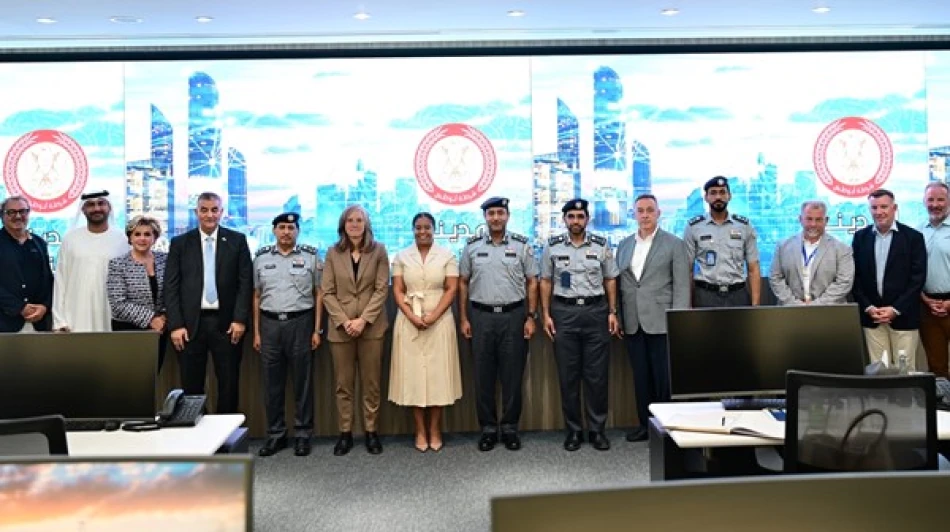
American Delegation Explores Abu Dhabi Police's 'Safe City' Security System
Abu Dhabi Police Showcases Smart City Security Tech to Illinois Officials in Strategic Partnership Push
A high-level delegation from Illinois visited Abu Dhabi Police's Safe City Management headquarters this week, signaling growing international interest in the UAE's advanced digital security infrastructure. The visit highlights how Gulf states are positioning themselves as exporters of smart city technology, while American states seek proven solutions for urban safety challenges.
Strategic Technology Transfer Takes Center Stage
The Illinois delegation, led by Deputy Governor Bria Scudder for Public Safety, Infrastructure, Environment and Energy, toured the Criminal Investigation and Forensic Science Directorate's Safe City operations center. Colonel Khalid Abdullah Al Khoori, Director of Decision Support and Institutional Development, emphasized Abu Dhabi Police's commitment to developing security infrastructure through innovative solutions that address future challenges while enhancing community quality of life.
This exchange reflects a broader trend of American municipalities and states looking beyond traditional vendors for smart city solutions. Illinois, facing urban safety challenges in cities like Chicago, appears to be exploring international best practices that could complement domestic security technologies.
AI-Powered Security Infrastructure on Display
Integrated Digital Systems Drive Decision-Making
Colonel Mohammed Abdullah Al Zaabi, Director of the Information Systems and Communications Center, detailed how Abu Dhabi Police integrates digital systems with artificial intelligence for data management and analysis. This approach enhances strategic decision accuracy and supports future forecasting capabilities—a critical advantage for law enforcement agencies managing complex urban environments.
The demonstration included advanced surveillance rooms, tower and camera technologies, and innovative systems designed to improve response efficiency. These technologies represent years of investment by the UAE in creating comprehensive urban monitoring capabilities that have become increasingly attractive to international partners.
Regional Leadership in Digital Security Solutions
Colonel Engineer Saeed Abdullah Al Rashidi, Director of Safe City Management, positioned Abu Dhabi Police as a leading model for digital security solutions both locally and internationally. This ambition aligns with the UAE's broader strategy to become a technology hub and exporter of smart city innovations.
Market Implications and Global Context
The Illinois visit comes amid growing competition in the global smart city technology market. While Chinese companies like Hikvision and Dahua have dominated surveillance technology exports, geopolitical tensions have created opportunities for alternative providers. The UAE's approach—combining Western partnerships with regional innovation—offers a middle path for American buyers concerned about supply chain security.
For Abu Dhabi, these technology partnerships serve multiple purposes: they validate the effectiveness of local innovations, create potential revenue streams through technology exports, and strengthen diplomatic ties with key international partners. The emirate has invested heavily in smart city infrastructure over the past decade, and demonstrating its capabilities to international delegations helps justify these investments while opening new markets.
Future Implications for Urban Security
This technology exchange reflects how urban security solutions are becoming increasingly globalized. As cities worldwide face similar challenges—from traffic management to crime prevention—proven systems like Abu Dhabi's integrated approach become valuable exports. The UAE's success in creating safe urban environments, evidenced by consistently high global safety rankings, gives weight to their technological offerings.
For Illinois and other American states, partnerships with proven international smart city operators could accelerate deployment of advanced security systems while potentially reducing costs compared to developing similar capabilities domestically. However, such partnerships will likely require careful consideration of data privacy, cybersecurity, and technology transfer implications.
Most Viewed News

 Layla Al Mansoori
Layla Al Mansoori






